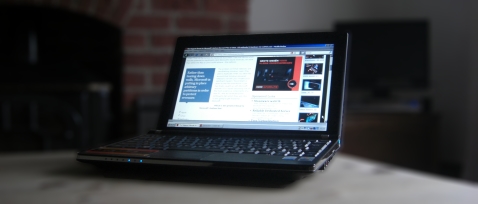The Microsoft-netbook controversy explained

Microsoft isn't a fan of netbooks. To put it down to one thing, it means they lose revenue in the long run. Netbooks, to those who aren't in the know, are smaller and more compact laptops. Because they're smaller, they have less memory, less computing power and smaller screens.
However, to their merit, they are a brilliant tool to have for students. They're immensely light, easy to use, very handy for taking down lecture notes and the batteries last much longer. The netbook that my parents bought for when they were travelling around the United States has a battery life of around 6-8 hours.

The problem is Microsoft doesn't like the notebook very much, because of the aforementioned reason - it loses them profit. I was talking to resident Microsoft blogger Mary-Jo "Nighthawk Zero Bravo" Foley, and she explained this one in simple layman terms for me, and you, the reader.
Windows XP will be available on notebooks until next year, but by then Windows 7 will be around on the market. OEM's, the companies which provide home and student customers with laptops, computers and netbooks, get charged a fraction of a price for the Windows software they sell on their products.
Vista still costs more than XP, for both consumers and OEM suppliers. But because Vista is so bulky and memory intensive, it can't be installed on netbooks, so XP is used instead. Because of this, the consumer is unaffected as are the OEM's, but Microsoft will lose a cut of money every time due to the cost difference.
The knock-on effect, especially in this economic climate, dictates that more and more people will buy netbooks because of their general awesomeness, and Microsoft's will slide as a result.
Microsoft are going to target Windows 7 Professional Home Premium to netbooks, but this can only be a viable option if Microsoft cuts the cost of the next generation operating system. Hardware prices go down as software prices go up. If you were to buy a brand new netbook at say, $400, you'd find yourself spending nearly that on a retail copy of Windows. So why should OEM's suffer?